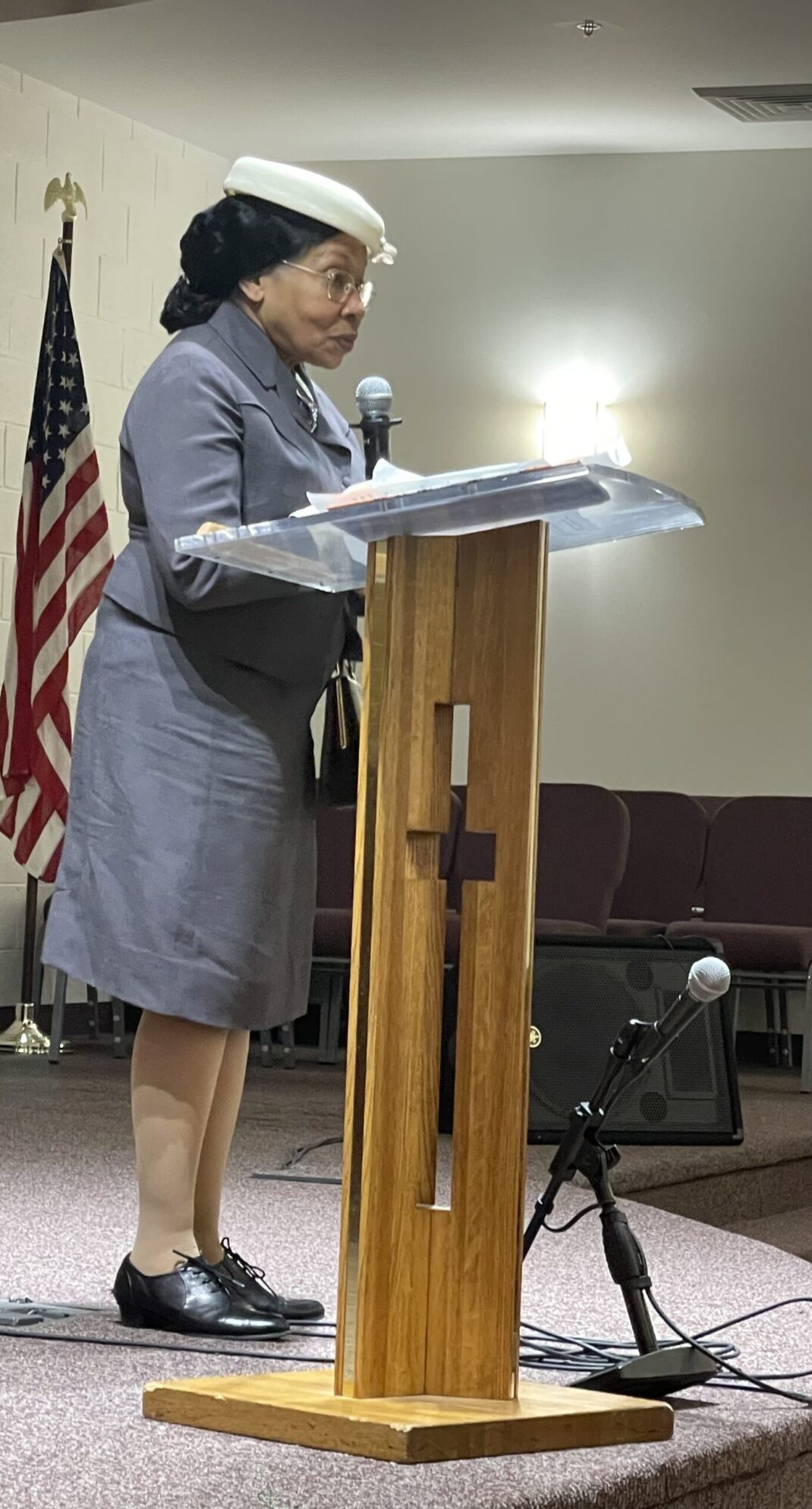Friends of Pasteur host educational program about Rosa Parks
February 1 & 2, 2024
This article by Shari Cohen was in the Detroit Jewish News 2/22/24
Rosa Parks is recognized as one of the foremost pioneers of the Civil Rights Movement — a soft-spoken, dignified African American woman who wouldn’t give up her seat for a white man on a Montgomery city bus. Her subsequent arrest led to a boycott of Montgomery’s segregated public bus system by local African Americans and a hard-earned early success for the civil rights movement.
The Friends of Pasteur, a local nonprofit that provides enrichment for Detroit’s Pasteur Elementary School students, brought Parks to life with a special gift from Ron Cohen, a 1962 Pasteur graduate, and his wife, Christie Smith. With their donation, an amazing Rosa Parks re-enactor from Montgomery, Alabama — Ann Clemons — visited Detroit for educational presentations at Pasteur School, New Prospect Memorial Baptist Church in Detroit and Temple Shir Tikvah in Troy
Cohen saw Clemons’ reenactment of Rosa Parks on a trip to civil rights sites organized last year by Cary Levy, a long-time friend and corresponding secretary for the Friends of Pasteur. “She really portrayed the problems of Montgomery. She was phenomenal,” Cohen said. While he has lived in Oregon for many years, Cohen has contributed to the Friends of Pasteur since its inception and attended some board meetings.
Clemons’ first presentation was held on Feb. 1 at New Prospect Missionary Baptist Church, a partner and neighbor of Pasteur School. Rev. Carnel Richardson, church pastor, mentioned his involvement in the Coalition for Black and Jewish Unity to Levy. The Coalition is a program of the Jewish Community Relations Council (JCRC/AJC) and Rev. Richardson thought that this group might want to participate in the Rosa Parks program. Rabbi Asher Lopatin, JCRC/AJC executive director, responded positively and provided a dessert buffet after the Clemons’ presentation.
As a group of more than 100 Pasteur staff, church members and Friends of Pasteur volunteers watched attentively, Clemons spoke in Park’s quiet, measured tone. Dressed in a 1950s-era gray suit, hat and gloves with a vintage pocketbook, she embodied Parks’ persona. Clemons described the indignity of paying bus fare to the driver at the front of a bus, and then having to exit and reenter the designated “Colored Section” at the rear.
On Dec. 1, 1955, when there weren’t enough seats for white passengers, the bus driver ordered Parks to give up her seat for a white man. She refused and was subsequently arrested. A representative of the Montgomery NAACP and a white lawyer bailed her out of jail. Local African Americans then boycotted the public bus system to end the segregated seating policy and enable them to be hired as bus drivers. After 381 days, the city agreed to change its policies.
At three presentations at Pasteur School, Clemons described what life was like in the segregated South. Students asked why she didn’t give up her seat on the bus and why there were separate drinking fountains for Black and white individuals. “I refused to be disrespected by anyone — white or Black,” said Clemons/Parks. “You did not always have these freedoms. You can go to any college you want if you make good grades.”
Pasteur teachers explained the importance of understanding history and the sacrifices made on their behalf by Parks and other civil rights heroes. Each student received an individual photo taken with Clemons — a gift that evoked smiles.
On Friday night, Clemons spoke to members of Congregation Shir Tikvah and guests, including members of Good Shepherd Missionary Baptist Church, who gave her a standing ovation. During the two-day program, Clemons reached 500 students and adults with the story of Rosa Parks’ courage and determination to gain equality for all.
“Clemons provides an awareness of what life was like. I’m proud that this event could come to Detroit because of Rosa’s Detroit connection,” Cohen said.
Rosa Parks’ Detroit Years
After the Montgomery bus boycott, both Rosa Parks and her husband lost their jobs and received death threats. They moved to Hampton, Virginia, and later to Detroit where Parks worked for U.S. Rep. John Conyers from 1965 to 1988. She continued her civil rights activism and wrote several books.
Her husband died in 1977; and in 1981 their house was robbed, and Parks was injured. The late federal Judge Damon Keith called a longtime friend — the late Al Taubman — asking for help to provide safer housing for Parks.
Taubman arranged for Parks to move to Riverfront Apartments in Downtown Detroit. A diverse group of prominent Detroiters —African American, white, Christian and Jewish —subsequently helped to pay her rent.Taubman also provided his plane to take Parks to the opening of the Troy University Rosa Parks Museum in 2000. She died in 2005 at age 92 and was the first African American woman to lie in state in the U.S. Capitol Rotunda.


